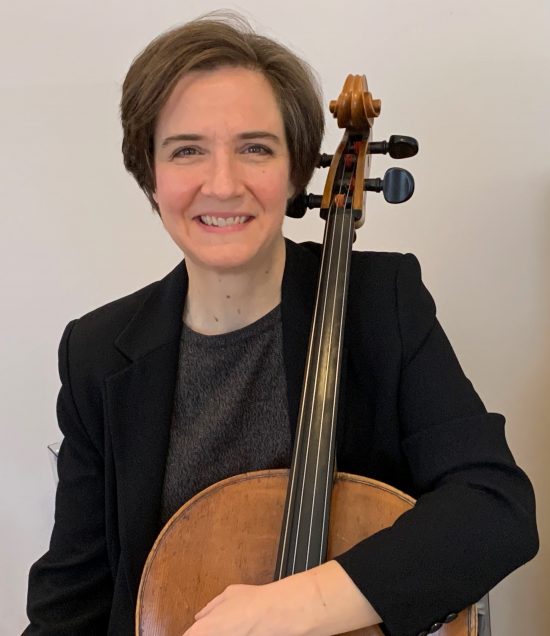Banish The Butterflies
Pianist Matthew Xiong helps musicians overcome performance anxiety

Banish the Butterflies
Pianist Matthew Xiong helps musicians overcome performance anxiety
By the age of 11, pianist Matthew Xiong could ascend a stage, calmly survey a sea of expectant faces, and, unperturbed, skillfully sail through Liszt’s Piano Concerto No. 1. For Xiong (’20), playing in front of an audience was exhilarating. Then one day in his early teens, he sat down at the piano at a high-pressure national music competition in his native Australia to perform his beloved Liszt concerto.
He froze.
“I had already been in quite a few competitions by that time, so I was not unfamiliar to the pressure,” he says. “But that competition, I felt extremely nervous. I had a gigantic memory lapse onstage, and it was just unrecoverable—and extremely humiliating.”
From that point on, Xiong was plagued by a dread of performing, something he describes as a “mild form of PTSD.” He carried on with his career, but before performances he would shake uncontrollably and his diaphragm would seize up.
“I would go onstage, and I’d be like, ‘Why am I so cripplingly anxious about this when I love performing and I love playing music?’”
The search for an answer to that question has brought Xiong to where he is today—a music instructor dedicated to helping other musicians overcome potentially career-killing performance anxiety.

Xiong teaches at two Boston-area music schools—Talent Music Academy in Brighton and Merry Melody Music Academy in Westwood. He says that traditional advice about overcoming stage fright—practice, practice, practice or play more public concerts—doesn’t begin to account for the complex interplay of factors leading performers to quake in fear onstage. Sometimes performance anxiety can be triggered by one bad performance, like his. Other times it can be related to deeper psychological issues. Sometimes anxiety can be intense and paralyzing, akin to a panic attack, Xiong says, or it can be the racing heartbeat that many of us feel when all eyes are on us.
His assessment is backed by research in the area, says Karin S. Hendricks, an associate professor of music and chair of music education. For example, some studies have suggested that musical performance anxiety is predicted by depression and certain anxiety disorders. Culture, genetics, and even nutrition can also play a role.
“Every one of us has such a complex and unique system of experiences and influences in our lives,” says Hendricks, who coauthored Performance Anxiety Strategies: A Musician’s Guide to Managing Stage Fright (Rowman & Littlefield, 2016). “It’s really not just one thing that causes performance anxiety. We have influences from parents, teachers, experiences, but then we also have our own internal processes. And these all influence us to have our own recipe for anxiety. We call it performance anxiety or stage fright, but even that means something different to every person. What may be butterflies to some people, getting them excited to go onstage and jazzed up to give a marvelous performance, can paralyze another person.”

For years after that failed performance, Xiong sought advice from musical mentors about what he might do to quell his paralyzing fear. Everyone told him that he shouldn’t worry, since he’d practiced so much. Their gentle admonishment: just don’t be nervous, you’ll do fine.
“That was really easy for them to say,” he says, “but what could I actually do to not be nervous?”
It wasn’t until Xiong, who received a master’s in music performance at BU, became a music instructor that he moved closer to figuring out how to help others with performance anxiety.
“It was actually when I got into teaching that I realized I need to solve this problem because I’m seeing this in my students and they’re suffering too,” he says. “It breaks my heart. I can see how I was in those situations. It only takes one bad performance experience for them to spiral into the void.”
Xiong began intense research and came across the work of Noa Kageyama, a performance coach at Juilliard, who advocates “centering” as a way of productively channeling nervousness. He combed through studies in the areas of anxiety and sports psychology. He discovered the concept of “flooding” or desensitizing phobia patients by immersing them in anxiety-provoking situations. He knew that such a model of treatment would not translate well to the stage, where anxious musicians are likely to feel even worse after a jittery performance, thereby reinforcing their anxiety.
“It just ends up being catastrophic,” Xiong says.
Over time, he developed his own methods. Rather than desensitize students to their performance fears, he allows them to decide for themselves exactly how much pressure they are willing to put themselves under. At first, they may play only in front of Xiong. Then they might choose to add another student or two. As time passes, they might grow their audiences little by little.
“Anyone could benefit with the kind of incremental exposure that I do with my students when they feel a sense of anxiety,” says Xiong, who has developed several other strategies for conquering stage fright. (For more of them, read “Five Steps to Help Manage Performance Anxiety,” below.)
“If they’re trained in that from the get-go, even if they have a catastrophic experience, they won’t fall into that ‘I’m having a post-traumatic stress response to this.’ They already have the tools to deal with it.”